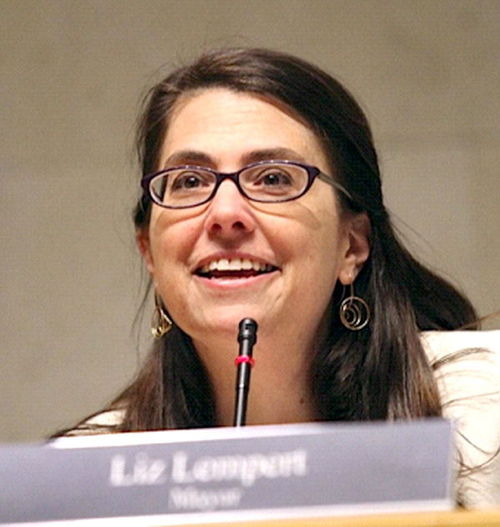Mayor Liz Lempert is the first to admit that she loves serving as the mayor of Princeton.
Whether it’s working out the kinks to make two towns into one, resolving affordable housing issues or ensuring that Princeton is a welcoming town to all, it’s a challenging and stimulating job.
“Every day is different. It is never boring,” Lempert said.
But after two back-to-back terms, Lempert is ready to pass the baton. She announced her decision not to seek a third term at the Princeton Council reorganization meeting on the morning of Jan. 2.
While there is not an official term limit, eight years as mayor “seems like a good amount of time for me. I never planned to make a career out of this,” Lempert said.
Her current term expires on Dec. 31.
Lempert also served four years on the former Princeton Township Committee before she was elected to be the first mayor of the Municipality of Princeton.
The municipality was formed by the consolidation of the former Princeton Borough and Princeton Township in 2012.
“This is an amazing community and it has been an honor to serve as mayor, but it is a very intense job. I think it merits someone who is able to match the intensity of the job,” Lempert said. “I think it is good for me and good for the community to give someone else the opportunity to serve as mayor.”
Lempert said she hopes and expects for a competitive race for mayor. It is important for the community to have a choice about who will be the next mayor, she said.
“It will help whoever the mayor is, to have gone through a competitive election,” Lempert said.
So far, Mark Freda is the only person who has announced candidacy for the Democratic Party nomination for mayor.
Freda served on the former Princeton Borough Council for 13 years, including five years as the Princeton Borough Council president.
Freda, who is a lifelong Princeton resident, helped to lead the consolidation effort. He is the president of the nonprofit Princeton First Aid and Rescue Squad. He is a volunteer emergency medical technician and a volunteer firefighter with the Princeton Fire Department.
Lempert said she is proud of what the town’s professional staff and the volunteers on the advisory boards and committees have accomplished, working collectively as a team.
Nevertheless, there is still much to do, Lempert said.
Pointing to her background as a former journalist, Lempert admits that she is “deadline-driven” to finish several projects before her term expires.
Among those projects is implementing the town’s affordable housing plan, outlined in a recent settlement agreement reached between Princeton and the nonprofit Fair Share Housing Center.
“I am excited about it and I am proud that we were able to push for a plan that reflects the principles of smart growth,” she said.
In professional planning circles, “smart growth” encourages development near transportation, creating walkable neighborhoods and offering a mix of housing styles and choices.
Some of the new housing will be centered around the Princeton Shopping Center, and some will be built in the northern part of the town that borders on Montgomery Township and its nearby shopping areas.
The mayor is also pleased with the town’s recently adopted Climate Action Plan. She said she wants to be certain that the town starts making progress on the steps outlined in the plan.
Lempert also would like to complete the bicycle and pedestrian portions of the Master Plan. She said she wants to ensure that as the town grows, it makes “significant investments” in bicycle infrastructure.
Lempert observed that in many ways, “we are living in the golden age for local government.” There is so much dysfunction in Washington, D.C., that it is hard to get things done, she said.
The result is that there are issues that end up on the doorstep of local government, she said. There are networks that link local governments across the United States, allowing the towns to brainstorm and support each other.
“You feel like you are part of something larger. There are issues like climate change and how to make immigrants feel like they are part of the community. People don’t think of them as local issues,” Lempert said, but in fact they are local issues.
Lempert said that because Princeton is Princeton, “we often end up in the middle of such issues.” But it’s not just climate change and immigration, she said.
There was an Ebola scare several years ago, and an anthrax scare involving U.S. Postal Service mail boxes.
Looking ahead, Lempert said, “This will be an exciting year. By the end of this year, Princeton Council will be so new. There will have been a complete turnover [from the first Princeton Council that took office in 2013],” she said.
Although Lempert still has 300-plus days left in office, she does not have firm plans in place for a post-mayoral life.
“I don’t know yet what opportunities there will be. I am looking forward to being involved and working on issues that I care about, but in a different capacity,” Lempert said.
Among those issues are the environment, sustainability, housing and encouraging young people to become involved. As mayor, she was able to work with nonprofit organizations and advocates.
“I still have a full year as mayor, and I will continue to throw myself into it. I will be fully engaged until the end of the year,” she said.
“There are many issues that I feel passionate about, and I will continue to work on them,” Lempert said.

